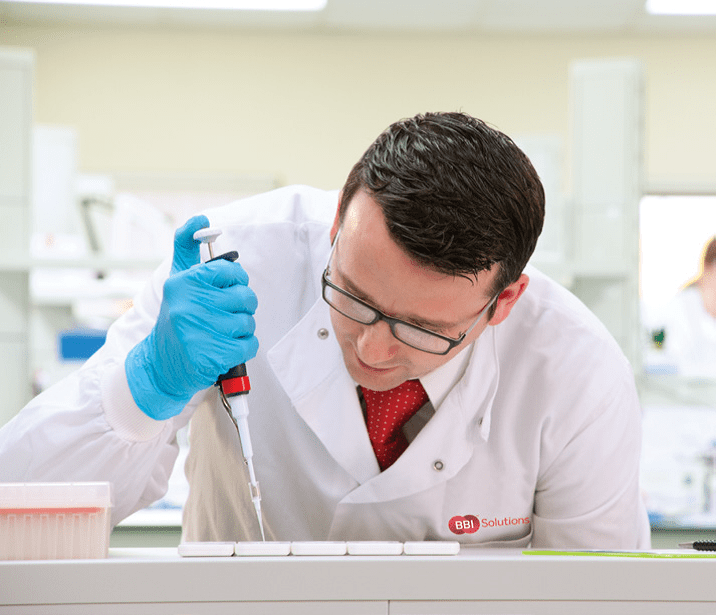The BBI Group (BBI), Cardiff, United Kingdom, has developed a rapid test for ebola in collaboration with the UK’s defense science and technology laboratory, using technology licensed through the technology transfer company Ploughshare Innovations.
The assay, which is in the process of being verified to allow emergency use authorization submission, will be used to test patients suspected of ebola infection to screen and potentially help with how they are subsequently managed. Utilizing lateral-flow technology, the test can provide a result in approximately 20 minutes.
More than one year after the initial outbreak in West Africa, the reported number of ebola cases sits at more than 27,000, with 11,000 deaths to date.1
Using lateral-flow technology, BBI’s assay will make testing simpler and quicker than assays such as reverse transcription polymerase chain reaction, which requires technical infrastructure. With minimal training, local health teams can complete the test at bedside and have a result in 20 minutes. In-field data suggests the test could be used as a negative agreement “rule-out” test and screening method.2 In the future, such a test could possibly be deployed at borders to monitor and control spread of the virus.
Through collaboration with partners, a lateral-flow test has already been evaluated in the field. In trials in Sierra Leone, of 138 participants enrolled in testing, the detection rate was 100%. At a low positive the test achieved 100% sensitivity and 92% specificity, and at a high positive, 100% sensitivity and 97% specificity,3 making the BBI assay potentially more sensitive and specific than other lateral-flow or dipstick type assays currently available.
An integrated AtomoRapid platform reduces the number of components in the kit, simplifying the process for end users while reducing the risk of user error and cross-contamination.
Aiming for a third quarter 2015 launch, following regulatory approval, the test will be available for immediate deployment in affected areas. BBI will then roll out to all global territories following their respective regulatory registration and acceptance.
In addition, a second version of the test will be evaluated in combination with the Novarum DX Smartphone reader. Allowing users to read and share test data using smartphone technology, the development could allow instant connectivity of patients and field workers with medical experts, while also utilizing built-in GPS capability to track and monitor disease hot spots.
“Our expertise and flexibility has allowed us to quickly deploy a team and develop a rapid test in 9 months which, based on field testing, promises to have an immediate and positive impact on the ebola crisis,” says Leigh Thomas, chief commercial officer at BBI. “We are pleased that our test will meet an immediate need in the field and ultimately improve the lives of others”.
For more information, visit BBI Group or visit BBI Solutions at AACC booth 3665.
References
- Ebola Situation Report 01 July 2015. World Health Organization. Available at http://apps.who.int/ebola/current-situation/ebola-situation-report-1-july-2015. Accessed July 2, 2015.
- Walker NF, et al. “Evaluation of a point-of-care blood test for identification of ebola virus disease at ebola holding units, western area, Sierra Leone, January to February 2015.” Eurosurveillance. 2015; 20(12):4–6.







